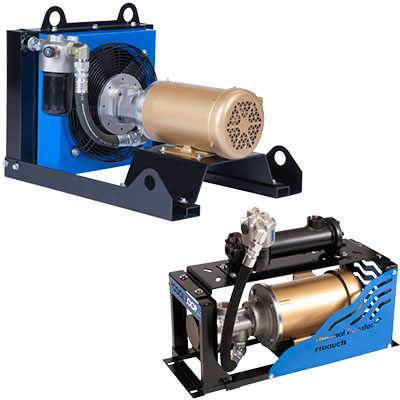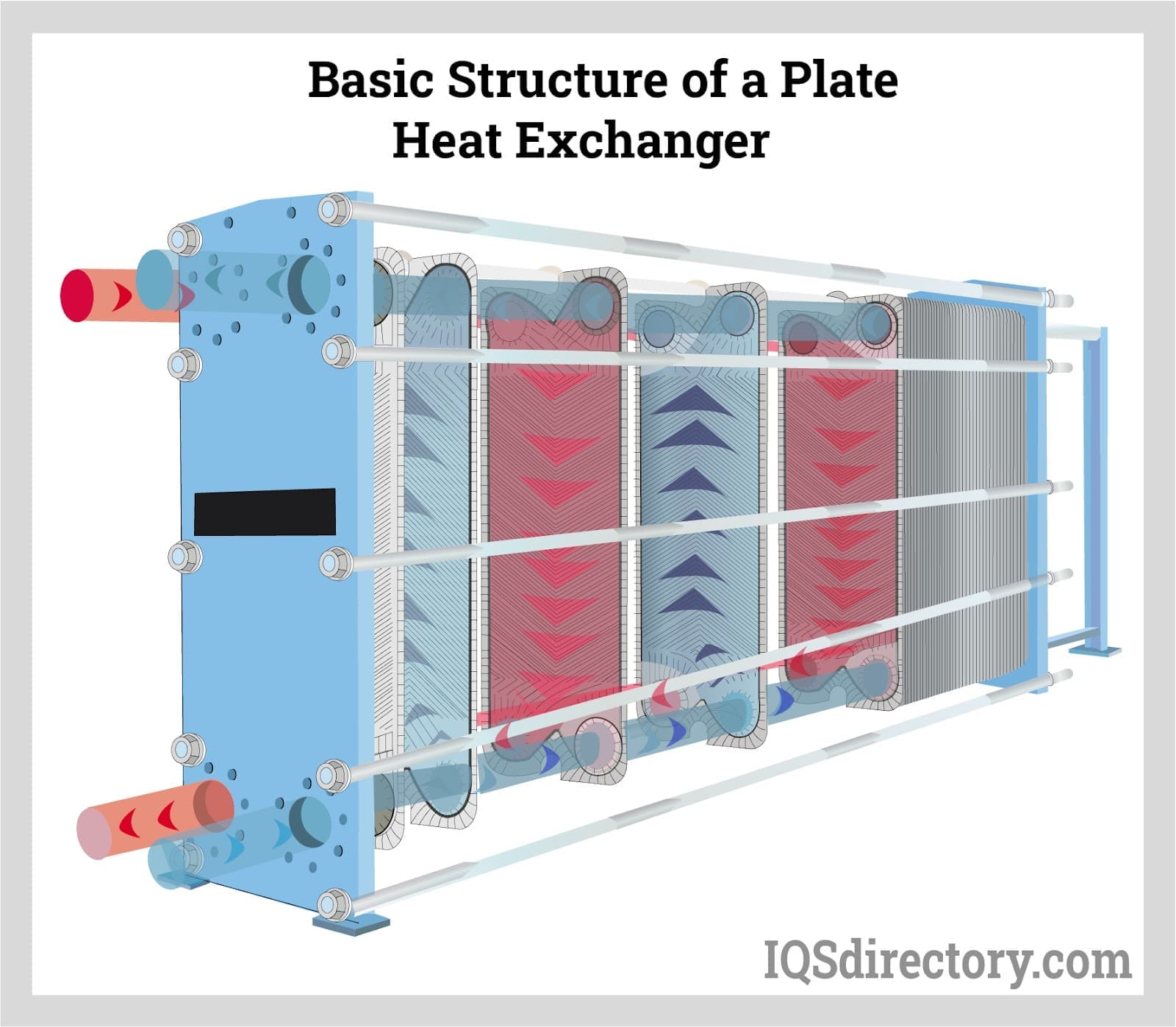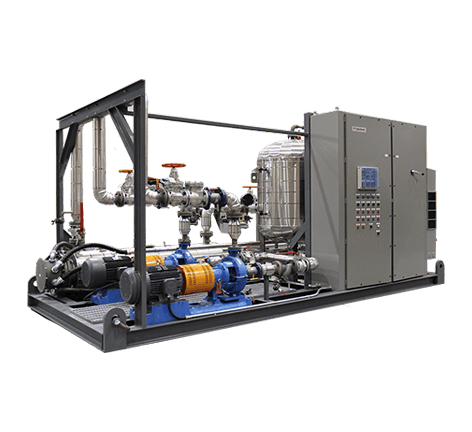Ways to Optimize Thermal Conductivity with DVS Heat Transfer Systems in Extreme Environments
The Role of Heat Transfer Equipments in Sustainable Power Solutions for the Future
Heat transfer systems are necessary in the mission for sustainable power remedies. They maximize thermal power administration, enhancing the efficiency of eco-friendly technologies. By employing devices like conduction, radiation, and convection, these systems decrease power losses. Their role in solar thermal and geothermal applications is specifically substantial. As technologies arise, the potential for more improvements elevates essential concerns concerning future power techniques. What developments will form the landscape of sustainable power?
Understanding Heat Transfer Solutions

The Value of Thermal Energy Management
Reliable thermal energy monitoring is vital for optimizing energy performance and minimizing waste in different systems. By managing temperature and enhancing Heat transfer procedures, organizations can considerably reduce power consumption and operational expenses. Reliable management entails the implementation of sophisticated technologies and practices that monitor and regulate thermal problems within systems, guaranteeing that power resources are made use of successfully. Furthermore, proper thermal energy administration adds to reducing greenhouse gas emissions, lining up with international sustainability goals. It also enhances system dependability and performance, resulting in enhanced product top quality and longer equipment lifespan. Eventually, prioritizing thermal energy administration is a crucial step in the direction of developing more sustainable energy services and promoting an accountable technique to energy consumption in residential and industrial contexts.
Applications of Heat Transfer in Renewable Power
While numerous renewable resource sources promise sustainability, the reliable application of Heat transfer plays a vital function in their effectiveness. In wind energy systems, Heat transfer is used for wind turbine element cooling, enhancing performance and long life. Geothermal power depends on reliable Heat exchange between the planet's subsurface and the liquid flowing in the system, making the most of power extraction. Biomass energy procedures also benefit from Heat transfer, as it helps in converting organic products into useful fuel via pyrolysis and gasification. Furthermore, in hydropower, preserving excellent temperatures in reservoirs can enhance energy outcome. Each of these applications shows the essential value of Heat transfer systems in improving renewable power innovations, inevitably adding to an extra lasting energy future.
Enhancing Solar Thermal Power Performance
As solar thermal power systems remain to evolve, improving their effectiveness has actually become crucial for optimizing energy outcome. Advancements in Heat transfer innovations, such as boosted thermal storage materials and innovative Heat exchangers, play a substantial function in enhancing performance. By making use of sophisticated products that have premium thermal conductivity, systems can move and capture Heat a lot more successfully. In addition, integrating monitoring systems that comply with the sun's course warranties that enthusiasts receive suitable solar exposure throughout the day. Making use of nanotechnology in solar absorbers can further increase energy absorption prices. Incorporating computerized control systems assists manage temperature levels and take care of power distribution efficiently, leading to reduced losses and enhanced overall system effectiveness. These improvements lead the way for even more sustainable solar thermal energy remedies in the future.
Geothermal Home Heating: A Lasting Service
Geothermal heating presents a practical choice for lasting energy, using substantial ecological benefits through decreased greenhouse gas emissions. Its effectiveness and cost-effectiveness make it an appealing choice to typical furnace. However, obstacles connected to application must be resolved to optimize its possible influence.
Ecological Benefits of Geothermal
Typical home heating methods add substantially to greenhouse gas emissions, geothermal home heating offers a compelling choice that lessens ecological impact. By using the Earth's interior Heat, geothermal systems utilize a renewable resource resource, significantly lowering reliance on fossil fuels. This method creates very little carbon emissions, making it a cleaner choice for property and commercial home heating. Furthermore, geothermal systems promote power efficiency, as they require less energy compared to traditional home heating systems. DVS Heat Transfer Systems. The use of geothermal power additionally helps in minimizing air contamination, boosting local air quality and public health and wellness. As a lasting service, geothermal heating sustains climate change mitigation initiatives, placing itself as an important component in the shift towards a greener future
Efficiency and Cost-Effectiveness
Exactly how does geothermal home heating gauge up in regards to performance and cost-effectiveness compared to traditional furnace? Geothermal heating shows remarkable efficiency, typically accomplishing a coefficient of performance (POLICE) of 3 to 5, suggesting it produces three to five devices of Heat for each unit of electrical power consumed. This performance converts right into lower operating prices, especially in areas with steady geothermal resources. Initial setup costs can be greater than standard systems; nevertheless, long-term financial savings on power expenses and minimized maintenance expenses can balance out these in advance financial investments. Furthermore, many governments incentivize geothermal systems through discounts and tax credit scores, enhancing their cost-effectiveness. Generally, geothermal home heating emerges as a economically practical and sustainable choice to more standard heating options.
Execution Difficulties and Solutions
Many difficulties can impede the extensive application of geothermal heating unit, regardless of their clear benefits as a lasting power solution. High initial installation prices commonly prevent home owners and investors, making financing a considerable barrier. Furthermore, the geographical restrictions of appropriate geothermal websites restrict accessibility in particular regions. Regional laws and permitting processes can likewise make complex project development, resulting in delays. Public awareness and understanding of geothermal systems stay reduced, preventing acceptance. To important site attend to these obstacles, targeted education campaigns can enhance this page public knowledge, while federal government motivations might alleviate financial concerns. Working together with regional authorities to simplify regulations may facilitate smoother job approvals, eventually promoting the fostering of geothermal heating as a sensible, lasting power option.
Advancements in Heat Transfer Technologies
Advancements in Heat transfer technologies play an important role in improving power performance and sustainability. Advanced Heat exchangers and stage adjustment materials go to the center of these growths, using considerable enhancements in thermal administration. These technologies not just maximize power usage but additionally add to minimizing ecological impact in various applications.
Advanced Heat Exchangers
Advanced Heat exchangers play a vital role in boosting energy performance throughout different applications in sustainable energy services. These devices promote the transfer of Heat in between 2 or more liquids, markedly reducing energy consumption in procedures such as commercial heating, air conditioning, and power generation. Advancements in products and layout, such as using nanofluids and compact setups, have actually caused enhanced thermal efficiency and lowered size demands. Additionally, developments in digital monitoring and control systems permit optimized procedure, further boosting performance. By lessening waste Heat and maximizing energy healing, progressed Heat exchangers contribute to decrease carbon impacts and sustain the shift towards environmentally pleasant innovations. Their proceeded growth is important for achieving international energy sustainability objectives.
Stage Modification Products
The assimilation of phase modification materials (PCMs) into Heat transfer technologies represents a substantial innovation in energy administration and performance. PCMs absorb and launch thermal power throughout their phase changes, allowing effective temperature level guideline in structure products and energy systems. By storing excess Heat throughout top durations and releasing it when need boosts, PCMs add to pack shifting and energy conservation - DVS Heat Transfer Systems. This capability enhances the efficiency of eco-friendly power systems, specifically in solar thermal applications. Furthermore, PCMs can improve the thermal convenience of interior environments, lowering dependence on traditional heating and cooling down methods. As innovations in PCM solutions proceed to arise, their go right here function in sustainable energy services is positioned to grow, supplying encouraging methods for future research study and application

Future Leads for Heat Transfer in Lasting Energy
As the need for sustainable power services remains to climb, the duty of Heat transfer systems is ending up being increasingly critical fit future innovations. Technologies in layouts and products are expected to enhance effectiveness in Heat transfer, decreasing energy losses in different applications. The assimilation of advanced thermal storage space systems, such as phase change products and thermochemical storage, will allow far better management of power resources. Research study into nanofluids and biomimetic Heat exchangers might even more maximize thermal performance. The fostering of clever innovations will certainly allow for real-time monitoring and flexible control of Heat transfer processes. These innovations are positioned to greatly add to the overall efficiency and sustainability of energy systems, paving the method for a much more energy-efficient future.
Often Asked Inquiries
How Can People Apply Heat Transfer Equipment in the house?

People can apply Heat transfer systems in the house by setting up energy-efficient devices, utilizing radiant home heating, and enhancing insulation. These actions enhance energy effectiveness, decrease costs, and advertise lasting practices in household environments.

What Are the Expenses Connected With Mounting Heat Transfer Equipments?
The costs linked with setting up Heat transfer systems vary extensively, normally including equipment, installation labor, and maintenance. Aspects such as system kind, home size, and regional regulations greatly influence the general expense involved.
Exist Federal Government Motivations for Heat Transfer System Installations?
Federal government motivations for Heat transfer system installations differ by region and can include tax grants, discounts, and credit scores. These monetary advantages intend to urge fostering, eventually promoting power effectiveness and decreasing ecological influence within areas.
Exactly How Do Heat Transfer Solutions Effect Energy Expenses?
Heat transfer systems notably affect energy costs by optimizing energy efficiency. By improving the transfer of Heat, these systems reduce energy intake, causing lower utility prices and producing an extra lasting technique to energy management.
What Maintenance Is Required for Heat Transfer Equipments?
Upkeep for Heat transfer systems consists of normal inspections, cleaning of elements, checking liquid degrees, making sure appropriate insulation, and changing worn parts. These jobs aid maintain performance, prevent breakdowns, and prolong the system's functional lifespan.
These systems help with the activity of thermal power from one medium to one more, allowing the transfer of Heat for cooling, home heating, or power generation functions. Geothermal power counts on reliable Heat exchange between the earth's subsurface and the liquid circulating in the system, taking full advantage of energy extraction. Furthermore, geothermal systems advertise power performance, as they need much less power contrasted to standard home heating systems. Advanced Heat exchangers play a vital function in improving power efficiency across various applications in lasting power solutions. Heat transfer systems especially affect power costs by maximizing energy effectiveness.